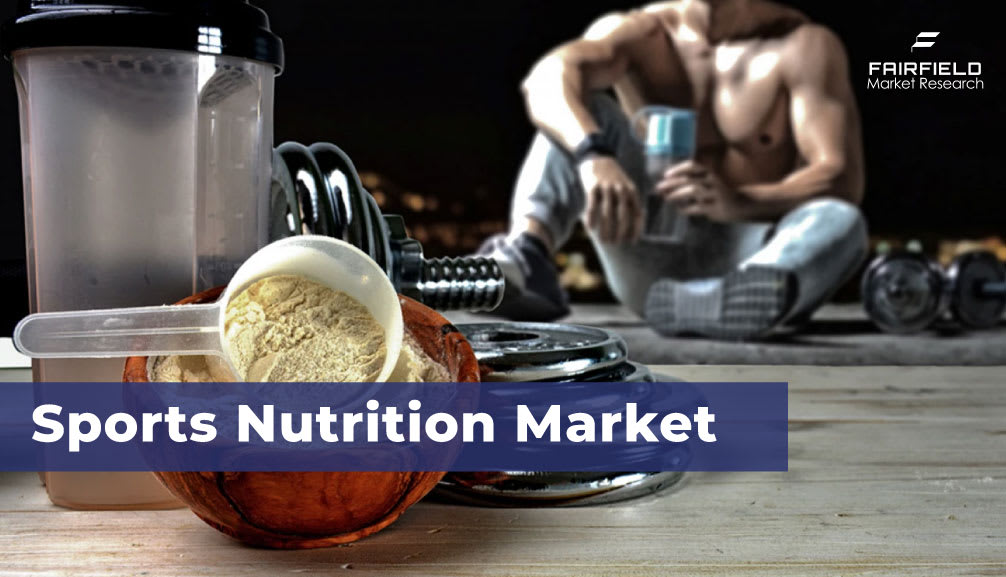As the world embraces a more health-conscious lifestyle, the global sports nutrition market is transforming into a vibrant, inclusive, and innovation-driven segment. Expected to surge from US$ 27.6 Bn in 2025 to US$ 50.1 Bn by 2032, the market is projected to grow at a CAGR of 8.9%, fueled by rising wellness awareness, the evolution of product formats, and expanding demographics beyond professional athletes.
Evolving Consumer Base and Clean Label Appeal
Traditionally associated with elite athletes and bodybuilders, sports nutrition is now a staple among casual gym-goers, fitness enthusiasts, and wellness-minded individuals. This shift is driven by increasing consumer focus on physical wellness, clean eating, and convenience. Meal-replacement protein shakes and functional snacks are becoming popular among busy professionals and active individuals seeking to maintain energy levels and muscle recovery on the go.
There’s also growing demand for natural, responsibly sourced, and eco-packaged products, with brands now developing plant-based proteins, organic supplements, and clean-label offerings to appeal to this evolving consumer base.
Innovation Driving Product Diversification
Product innovation is at the heart of the sports nutrition market’s growth. Flavor experimentation, such as dessert-inspired proteins, is helping brands attract new customers and retain existing ones. Creative packaging and on-the-go formats like protein bars, cookies, chips, and ready-to-consume (RTC) drinks are replacing traditional bulky powders and pills.
A standout trend is product bundling, where brands package complementary products—like protein powders, vitamins, and snacks—into value-driven bundles. This approach not only increases average order value (AOV) but also enhances customer loyalty and product discovery. Brands like Myprotein have successfully leveraged this model to expand their consumer footprint.
Convenience is King: Rise of RTC Products
In the fast-paced modern lifestyle, convenience is critical. Consumers are increasingly turning to single-serve, portable sports drinks and shakes that require minimal preparation. These RTC formats meet the demand for post-workout nutrition, hydration, and recovery with maximum ease.
Protein shakes, electrolyte beverages, and functional recovery drinks offer not only convenience but also personalized nutrition—key for health-focused millennials and Gen Z consumers. As brands innovate with nutrient profiles, flavors, and eco-friendly packaging, RTC products are poised to dominate the sports nutrition space.
Regional Demand Trends
North America: Fitness Culture and Innovation Fuel Market
The U.S. and Canada lead the sports nutrition space, driven by a strong fitness culture and rising gym participation. Brands in the region prioritize R&D and flavor innovation, while a robust retail and e-commerce ecosystem supports product accessibility and growth.
Europe: Clean Label Focus Boosts Adoption
European consumers increasingly embrace wellness lifestyles, with markets in the UK, Germany, France, and Spain leading demand. Preferences for natural, sustainably sourced ingredients and clean label products, coupled with strong marketing and retail reach, are driving regional expansion.
Challenges: Regulatory Fragmentation
Despite its growth, the market faces a significant challenge in the form of regulatory fragmentation. Sports nutrition brands must navigate differing standards across countries for ingredient approvals, labeling, and marketing claims. For example, the European Food Safety Authority (EFSA) has rejected several health claims related to popular ingredients like creatine and caffeine, posing hurdles for brands aiming to scale across borders.
This lack of regulatory alignment complicates global expansion and delays product rollouts, particularly for startups and mid-sized firms without deep regulatory expertise.
Competitive Landscape: Key Players Shaping the Market
Several major players are leading the sports nutrition market through product innovation, global expansion, and sustainability initiatives. Key companies include:
• Glanbia PLC
• Herbalife International
• Nestlé S.A.
• Mondelēz International
• THG Nutrition Limited
• Nutrabolt
• BioTechUSA Group
• Amway
• GNC Holdings
• QNT
• Sponser Sport Food AG
• The Quality Group
These companies are constantly evolving their offerings to include functional, sustainable, and performance-focused products aligned with global consumer demands.
Get Sample Copy of Report at: https://www.fairfieldmarketresearch.com/report/sports-nutrition-market/request-sample
